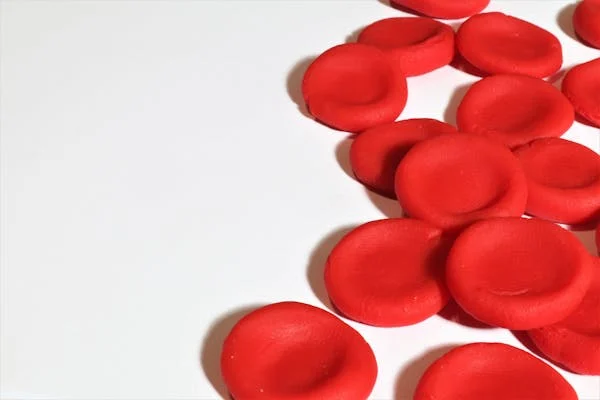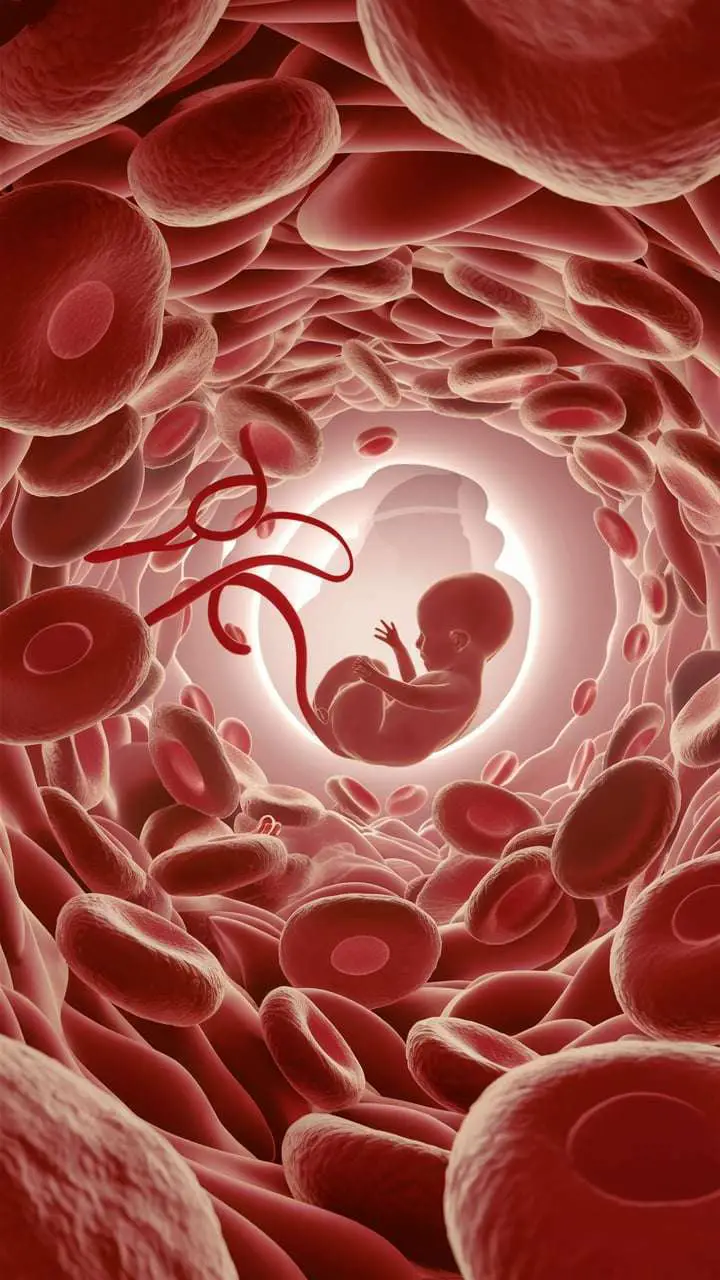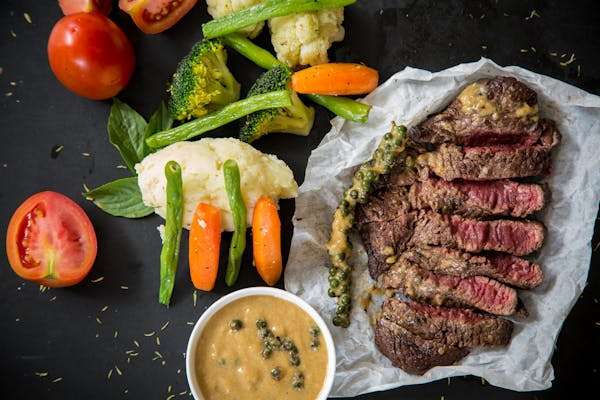Your body needs more iron during pregnancy in order to support both you and your developing child. Prenatal supplements are beneficial, but it’s also critical to include foods high in natural iron-rich foods for pregnancy.
Heme iron and non-heme iron are the two primary forms of iron. Animal products include heme iron, which your body absorbs more readily. The absorption of non-heme iron, which is present in plant-based diets, can be enhanced by pairing it with foods high in vitamin C. Let’s look at some excellent natural iron sources that you may incorporate into your pregnancy diet.
Why Iron is Crucial During Pregnancy:
While iron is a necessary mineral for all living things, its significance rises dramatically during pregnancy. Hemoglobin, a protein found in red blood cells that transports oxygen from your lungs to the rest of your body and to your unborn child, is produced in large part by iron.

Iron requirements rise during pregnancy as a result of a woman’s blood volume increasing by roughly 50% to support the developing fetus and placenta. Iron deficiency anemia, which is linked to a number of concerns such as premature delivery, low birth weight, and postpartum depression, can result from insufficient iron levels.
Ensuring sufficient consumption of iron is essential for the health of the baby and the mother.
The Role of Iron in Fetal Development
Iron is crucial for the baby’s growth and brain development. The fetus depends on the mother’s iron stores for its development during the first six months of life.
Adequate iron intake helps in the formation of the baby’s blood cells and supports the development of a healthy nervous system. A deficiency in iron can impair cognitive and physical development, which is why it is important to include natural iron-rich foods for pregnancy in your diet.
Risks of Iron Deficiency During Pregnancy
A maternal and fetal iron deficit during pregnancy might result in major health problems. The mother’s severe exhaustion, weakness, and dyspnea are signs of iron deficiency anemia. Low birth weight, preterm delivery, and infections can all be made more likely by severe anemia.
In severe circumstances, it may even result in difficulties in giving birth. Low iron levels can have an impact on the baby’s growth and brain development, which could result in long-term health problems.

Consuming naturally iron-rich foods for pregnancy, such as lean meats, beans, lentils, and leafy greens, can support a healthy pregnancy and help maintain appropriate iron levels. Frequent consumption of these foods can dramatically lower the risk of iron deficiency, especially when combined with meals high in vitamin C to improve iron absorption.
Top Natural Iron-Rich Foods for Pregnancy:
Consuming sufficient iron is vital during pregnancy to ensure both maternal health and optimal fetal development. Including natural iron-rich foods for pregnancy in your diet is an effective way to meet increased iron needs. Here are some of the top natural iron-rich foods that are beneficial during pregnancy:
Spinach
Spinach is a powerhouse of nutrients and a great source of non-heme iron. A single cup of cooked spinach provides about 6.4 mg of iron, which is essential for producing hemoglobin. Besides iron, spinach is rich in folic acid, which is crucial for preventing neural tube defects in the developing baby.
Lentils
Lentils are another excellent source of iron, providing about 6.6 mg per cup when cooked. They are also high in protein and fiber, which helps in maintaining stable blood sugar levels and digestive health. Nutrient-packed lentils add protein and fiber to soups, stews, and salads.
Red Meat
Red meat, including beef and lamb, is one of the best sources of heme iron, which is more easily absorbed by the body compared to non-heme iron found in plant sources. A 3-ounce serving of beef can provide about 2.1 mg of iron. Incorporating lean cuts of red meat into your diet can help boost iron levels effectively.

Quinoa
Quinoa is a nutritious whole grain that is not only rich in iron but also provides all nine essential amino acids. One cup of cooked quinoa contains about 2.8 mg of iron. It can be used in salads, added to soups, and served as a side dish.
Fortified Cereals
A significant amount of this essential nutrient can be found in morning cereals, many of which are fortified with iron. For instance, depending on the brand, a serving of fortified cereal may contain anywhere from 4 to 18 milligrams of iron. Iron absorption can be improved by selecting low-sugar cereals and eating them with berries or orange juice, which is a good source of vitamin C.
You may make sure you fulfill the higher iron requirements by including these naturally occurring, natural iron-rich foods for pregnancy. You may support your personal health and encourage your baby’s healthy development by including a range of these foods in your meals.
Benefits of Consuming Natural Iron-Rich Foods for Pregnancy:
Eating a diet rich in iron is crucial during pregnancy, not just for meeting the increased nutritional needs of the mother and baby, but also for supporting overall health and well-being. Consuming natural iron-rich foods for pregnancy offers a range of benefits that are essential for a healthy pregnancy.
Improved Energy Levels
The increase in energy levels is one of the main advantages of eating natural iron-rich foods for pregnancy. Hemoglobin, the protein found in red blood cells that transports oxygen throughout the body, is largely composed of iron.
The volume of blood grows dramatically during pregnancy, increasing the need for iron. Consuming adequate iron guarantees that your body can generate enough red blood cells to meet these needs, which helps minimize weakness and exhaustion.
Good sources of iron that can help you stay energized throughout the day are spinach, lentils, and lean meats.
Better Oxygen Supply to the Baby
Iron is essential for ensuring that oxygen is effectively transported from the mother’s blood to the developing baby. Hemoglobin, which contains iron, binds oxygen in the lungs and releases it to the tissues.
Adequate iron intake through natural iron-rich foods for pregnancy helps ensure that there is a sufficient supply of oxygen for the fetus, which is crucial for healthy growth and development. Foods such as red meat, quinoa, and fortified cereals contribute to maintaining optimal oxygen levels for both the mother and baby.
Reduced Risk of Anemia
Pregnancy-related natural iron-rich dietary consumption lowers the incidence of iron deficiency anemia. Preterm birth, low birth weight, and an increased risk of postpartum depression are just a few of the issues that can result from anemia during pregnancy.
A healthy pregnancy can be supported and anemia can be effectively prevented by having foods high in iron in your diet. Iron-rich foods like spinach, lentils, and beans help maintain sufficient iron levels, which lowers the risk of anemia and the problems that come with it.
Support for a Healthy Immune System
Additionally, iron is essential for maintaining a strong immune system. It promotes immune system health and aids in the generation of white blood cells, both of which are critical during pregnancy when the body is under more stress.
Pregnancy-friendly foods high in natural iron, such as leafy greens and lean meats, supply the iron required to maintain immune function and stave off infections. Including a range of naturally occurring foods high in iron throughout pregnancy not only helps you fulfill your heightened iron requirements, but it also offers other health advantages.
You may boost your energy levels, enhance the flow of oxygen to your unborn child, lower your chance of anemia, and strengthen your immune system for a more robust pregnancy by concentrating on these nutrient-dense meals.
Incorporating These Foods into Your Diet:
Ensuring adequate iron intake during pregnancy is essential for both maternal and fetal health. By incorporating natural iron-rich foods for pregnancy into your daily diet, you can effectively meet your increased iron needs. Here are some practical tips and strategies to seamlessly integrate these foods into your meals.
Meal Ideas and Recipes
Breakfast: Start your day with an iron-boosting breakfast. Opt for a smoothie made with spinach, kale, and a splash of orange juice. The vitamin C in the orange juice enhances iron absorption from the leafy greens. Alternatively, a bowl of fortified cereal with fresh strawberries can provide a substantial amount of iron and vitamin C.
Lunch: For lunch, consider a quinoa salad loaded with chickpeas, chopped bell peppers, and a lemon-tahini dressing. Quinoa and chickpeas are excellent sources of iron, while the bell peppers and lemon juice boost absorption. Another great option is a lentil soup or a spinach and chicken wrap, both of which are rich in iron and easy to prepare.
Dinner: Dinner can feature lean red meat, such as grilled steak or roasted lamb, paired with a side of steamed broccoli or kale. These vegetables not only add iron but also provide vitamin C. For a vegetarian option, try a stir-fry with tofu, bok choy, and bell peppers served over brown rice. This combination ensures a good intake of iron and nutrients that aid in its absorption.
Tips for Enhancing Iron Absorption
Incorporate foods high in vitamin C into your meals to enhance iron absorption from plant-based sources. Fruits like oranges, strawberries, and bell peppers are excellent choices. Additionally, avoid consuming coffee or tea with meals, as they contain compounds that can inhibit iron absorption.
Snacking Smart
For snacks, choose iron-rich options like pumpkin seeds, dried apricots, or hummus with raw vegetables. These snacks are convenient and help maintain your iron levels throughout the day.
By incorporating these natural iron-rich foods for pregnancy into your diet, you can effectively support your iron needs. Planning balanced meals and snacks ensures you and your baby receive the essential nutrients required for a healthy pregnancy.
Conclusion:
Incorporating natural iron-rich foods for pregnancy into your diet is essential for ensuring the health and well-being of both mother and baby. By including foods like spinach, lentils, red meat, and quinoa, you can effectively meet your increased iron needs and enjoy numerous health benefits.
Remember to pair these foods with vitamin C-rich options to enhance absorption and maintain optimal iron levels throughout your pregnancy. Prioritize these nutrient-dense choices for a healthier, more energized pregnancy. Click to learn more.
FAQs:
Why is iron important during pregnancy?
Iron is crucial for producing hemoglobin, which carries oxygen to the baby and supports increased blood volume.
What are some natural iron-rich foods for pregnancy?
Spinach, lentils, red meat, quinoa, and fortified cereals are excellent sources of natural iron.
What are effective ways to enhance iron absorption from my diet?
Pair iron-rich foods with vitamin C-rich foods, like bell peppers or oranges, to enhance absorption.
Is it possible to obtain sufficient iron from a vegetarian diet during pregnancy?
Yes, by including iron-rich plant foods like lentils, spinach, and quinoa, and combining them with vitamin C-rich foods.
What are the symptoms of iron deficiency during pregnancy?
Common symptoms include tiredness, weakness, breathlessness, and pale skin. If you notice these signs, it’s crucial to seek advice from your doctor.
